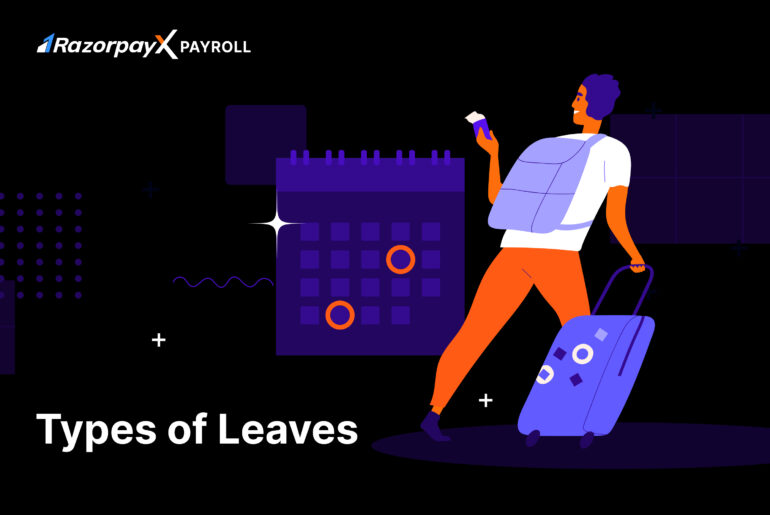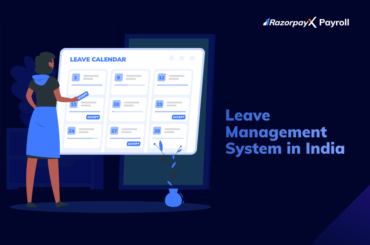Leaves or time off from work are essential for employees of any organisation. In India, there are several types of leaves granted by the government to employees to manage work-life balance.
In this blog post, we will list the different types of leaves available for employees in India, their eligibility criteria, and their benefits.
Table of Contents
Types of leaves in India
There are below mentioned 12 different types of leaves in India and we’ve provided details about each in the next section.
- Casual leave
- Privileged leave/earned leave
- Sick leave
- Maternity leave
- Marriage leave
- Paternity leave
- Bereavement Leave
- Comp off
- Loss of Pay
- Sabbatical leave
- Study leave
- Religious festival leaves
1. Casual Leave
Casual leave is granted to employees for unexpected or urgent situations such as personal emergencies or sudden illnesses. The number of casual leaves varies from organization to organization, but typically, employees can avail of up to 7-10 days of casual leave in a year.
2. Privileged Leave/ Earned Leave
Privileged leave or earned leave is granted to employees who have completed a certain number of years in the organization. This type of leave is usually planned and taken in advance, unlike casual leave. The number of privileged leaves varies from organization to organization, and it typically ranges from 15-30 days per year.
3. Sick Leave
Sick leave is granted to employees who are unwell or have an illness that prevents them from coming to work. In India, employees are entitled to a certain number of sick leave days every year, which varies from organization to organization.
Companies like Razorpay have renamed sick leaves to ‘wellness leaves’ to encourage employees to take leaves for mental health. CEO & Co-Founder, Harshil Mathur said,
 4. Maternity Leave
4. Maternity Leave
Maternity leave is granted to female employees who are expecting a child. In India, female employees are entitled to 26 weeks of maternity leave, which can be availed of before or after childbirth. During this period, the employee is entitled to full pay.
5. Marriage Leave
Marriage leave is granted to employees who are getting married. The number of marriage leave days varies from organization to organization, but typically, employees are entitled to 3-5 days of marriage leave.
6. Paternity Leave
Paternity leave is granted to male employees who have become fathers. In India, male employees are entitled to 15 days of paternity leave. These can be availed of within 6 months of the birth of the child.
7. Bereavement Leave
Bereavement leave is granted to employees who have suffered a personal loss such as the death of a close family member. The number of bereavement leave days varies from organization to organization, but typically, employees are entitled to 3-5 days of bereavement leave.
8. Comp Off
Comp off or compensatory off is a type of leave granted to employees who have worked on a holiday or a weekend. In such cases, the employee is granted a compensatory off day, which can be availed of at a later date.
9. Loss of Pay
Loss of pay is when the employee is not paid for the duration of the leave. This type of leave is typically granted for personal reasons such as extended travel or study breaks.
10. Sabbatical Leave
A sabbatical leave is a period of extended break taken by employees from their job for personal or professional reasons. This leave can be used for various reasons, including pursuing further education, travelling, or simply taking a break from work.
11. Study Leave
Study leave is granted to employees to pursue their higher education or professional development. This leave is typically granted for a specific duration, during which the employee can enrol in a course or program of study related to their job or career. The employee is usually expected to return to work after the completion of the study leave and utilize the knowledge and skills gained during the leave to benefit the organization.
The duration and eligibility criteria for study leave vary from organization to organization and are usually outlined in the company’s HR policy. Study leave may be granted with or without pay, and employees may be required to sign a bond to serve the organization for a specified period after the completion of the study leave.
12. Religious Festival Leaves
Religious festival leaves are granted to employees to observe and celebrate religious festivals that are significant to them. In India, there are several festivals that are celebrated by people from different religions, such as Diwali, Christmas, Eid, and so on.
You can take help from our FREE HR Survival Toolkit that has the 2023 calendar to plan for leaves and HR events in your companies. It also has other resources such as HR letter templates, checklists and deadlines.
Employers should also ensure that their employees are informed about the different types of leaves they are entitled to and that the leaves are granted in a fair and transparent manner.
Manage employees and their leaves better with RazorpayX Payroll
RazorpayX Payroll is India’s only fully automated payroll software that offers a myriad of features for HR professionals, admins and employees. It also has a leave management system integrated with so that it factors in the leaves granted when employee salaries are calculated and disbursed.
Other features of RazorpayX Payroll include:
- HR Management software
- Accurate salary calculation & disbursement
- Automatic compliance calculation & filings such as PF, PT, TDS & ESIC
- Annual proof verification of investments done by employees
- Employee reimbursements
- Form 16 and payslip generation





